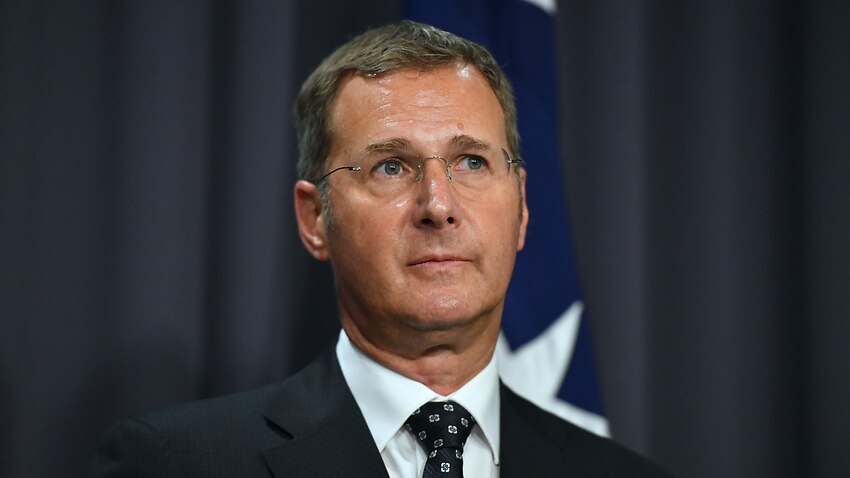Australia is seeking more information from New Zealand health authorities before restarting quarantine-free travel after two new positive coronavirus tests.
A 72-hour pause on the one-way travel bubble is due to end at 2pm on Thursday, but a decision on whether to extend it could come down to the wire.
Two people who completed hotel isolation in New Zealand have returned positive results despite earlier twice testing negative and completing their 14-day quarantine.
Australia’s Acting Chief Health Officer Michael Kidd said more information about the new cases was needed before a decision on travel arrangements would be made.
“The situation is evolving rapidly,” he told reporters in Canberra on Wednesday.
“We will be following up the details of both of these cases with the New Zealand authorities once further details, including the results of additional testing, are known.”
The travel bubble was frozen after a New Zealand woman tested positive for the highly contagious South African strain of coronavirus.
She completed quarantine before circulating in the community but there has been no detected local transmission so far.
New Zealand’s health ministry on Wednesday said it was yet to be confirmed if the two new positive tests represented recent or historic infections, with further urgent testing being carried out.
Australia has now notched 10 consecutive days without a locally acquired case.
Meanwhile, a new advertising campaign is being rolled out to encourage Australians to get coronavirus vaccines.
The $24 million campaign will run across traditional and social media and provide information about the safety, efficacy and availability of vaccines.
It details how vaccines will be rolled out to priority groups including the elderly, disabled Australians and frontline workers.
Dosage requirements are also explained.
Professor Kidd said coronavirus restrictions would remain in place until significant numbers of the population had been vaccinated.
“I want to encourage everybody when it comes to be your turn in the priority list to get the vaccine, to please line-up, get vaccinated,” he said.
The campaign launch comes after the Therapeutic Goods Administration approved the Pfizer vaccine as the first to be used in Australia.
The vaccine rollout is expected to start in late February.
Paul Zahra from the Australian Retailers Association believes shop assistants should be among the first people to get vaccinated.
“We want to give customers confidence that when they’re shopping in a store that they are dealing with people that have been vaccinated,” he told the ABC.
The federal government has dismissed concerns about possible delays in getting vaccine supplies to Australia.
Pharmaceutical companies are locked in a dispute with the European Union over supplies.
The EU is planning to slap export controls on vaccines produced within its borders.
Treasurer Josh Frydenberg says that will not affect 10 million doses of the Pfizer vaccine produced in Belgium that Australia has purchased, or other doses of the AstraZeneca jab.
“Based on what we know today, that is not expected to change the arrival dates for those vaccines,” he told ABC radio.
Mr Frydenberg is opposed to the EU putting on export controls.
“Obviously we would not welcome that because, as the World Health Organisation has said, the vaccine needs to be spread as broadly and as widely as possible.”
People in Australia must stay at least 1.5 metres away from others. Check your jurisdiction’s restrictions on gathering limits. If you are experiencing cold or flu symptoms, stay home and arrange a test by calling your doctor or contact the Coronavirus Health Information Hotline on 1800 020 080. News and information is available in 63 languages at sbs.com.au/coronavirus.
Please check the relevant guidelines for your state or territory: NSW, Victoria, Queensland, Western Australia, South Australia, Northern Territory, ACT, Tasmania.







